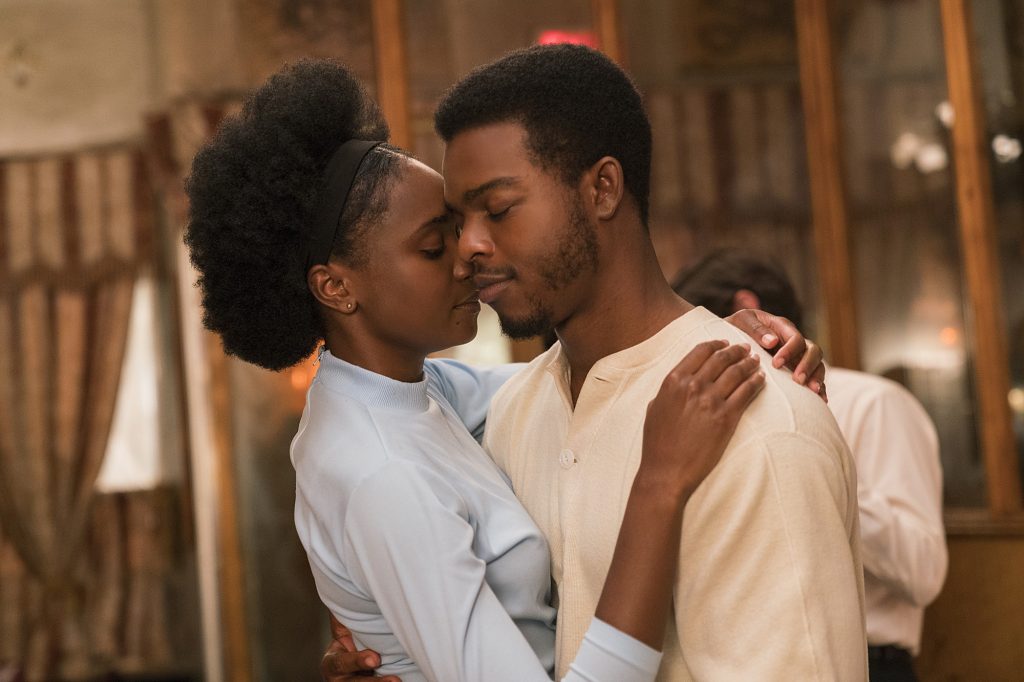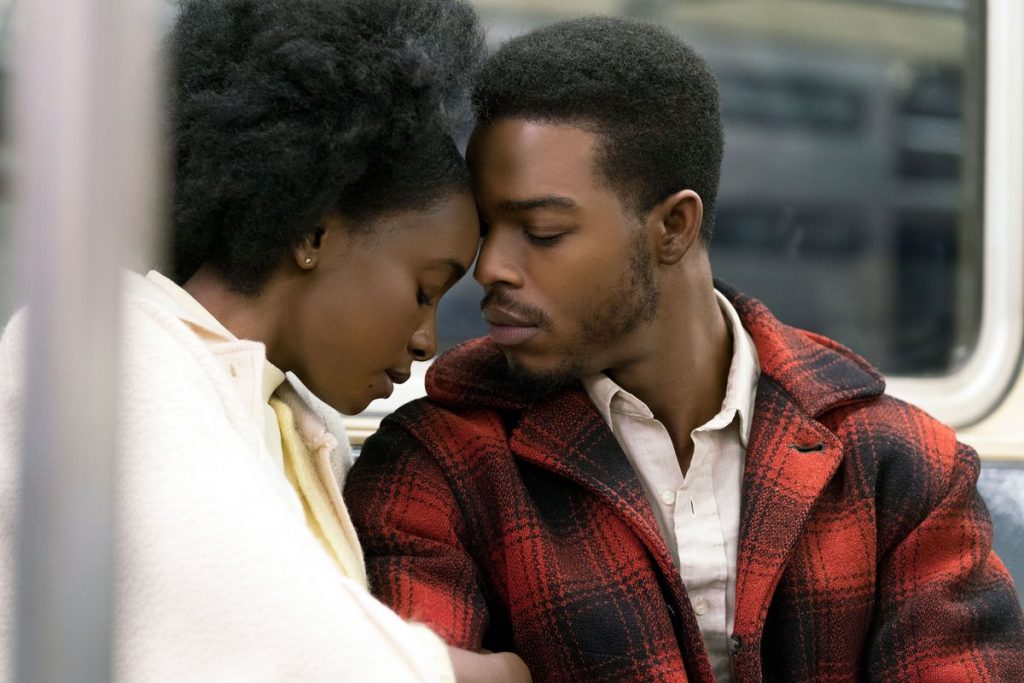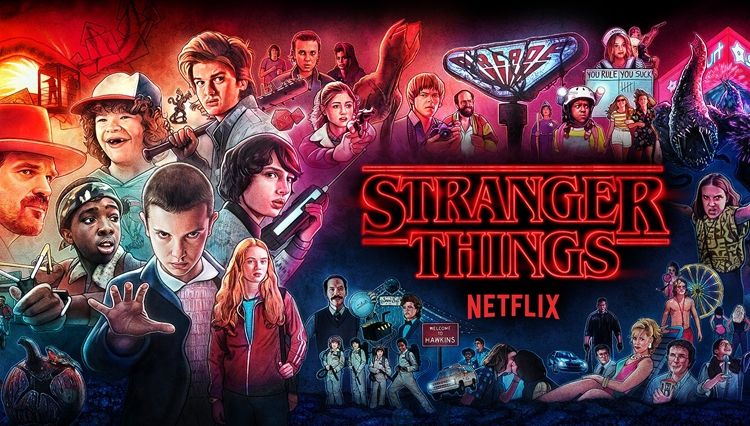If there’s anything that can be said about Barry Jenkins’ filmography, it’s that he likes to view his subjects as their own entities: heartfelt, fully realized and gripping in their roles. In 2016, his film Moonlight told the story of an African-American man throughout three different stages of his life, allowing the viewer to experience Chiron from an insider’s perspective instead of allowing the film to fall victim to a lack of identity. Over the course of the last few years, Jenkins has proven himself a force to be reckoned with. He returns to the big screen with If Beale Street Could Talk, adapted from James Baldwin’s 1974 novel of the same name.
Like Moonlight, Jenkins allows the viewer to be immersed in the world through the eyes of his characters, but this works doubly well as it did previously because of Beale Street‘s stance. One character is enough to carry a story, but two is even better. Ultimately, his films would amount to nothing without their leads, who in this case are Fonny (Stephan James) and Tish (KiKi Layne), two African-American citizens, friends since childhood, who fall in love. After Fonny is falsely accused of rape and put in jail, Tish and her family set out to prove his innocence.
Jenkins is a masterful director, and his craft is in full form here. Seeing the story through the lenses of his leads would be highly beneficial in its own right, but Beale Street works strictly because of the relationship between the two characters and the polarization between the film’s structured plot. It jumps back and forth from the past to the present, accentuating Tish and Fonny’s love for each other, a venture of escapism for the audience, and then serving up one gut-punch after another as it skips forward over and over again, showing the harsh reality that the couple deals with during Fonny’s imprisonment.

Easily one of the best parts of this film is its technicalities. If Beale Street Could Talk is a film that appreciates every small detail in its world. It shows an uncommon fondness for the little moments, but even those feel so monumental. An example of this occurs about halfway through the movie, when the viewer witnesses the couple finally securing an apartment together. While walking down the street, hand-in-hand, Fonny runs forward and lets out a holler of joy, with Tish following behind and squealing in excitement as she runs into his arms and they embrace. It’s a mesmerizing encapsulation of their love, and easily one of the best moments in a movie full of exceptional ones.
There isn’t a single performance in this film that is less than stellar, which is a true testament to both the skill of the actors and Jenkins’ incredible script. KiKi Layne and Stephan James are two actors to be on the lookout for in future films, both delivering astounding portrayals as our main lovers. Dialogue is something that the pair excel miraculously at, but even more so is their dual ability to convey a staggering amount of emotion through facial expressions. Many scenes depict Tish talking to Fonny from the other side of the glass, and in the first scene like this, James’ smile as he walks through the door and sees her is just extraordinarily uplifting. But as the film progresses, the viewer begins to see hope fall through the cracks as his facial expressions become increasingly drained of happiness. Just the chats between the two are enough to bring viewers to tears.
It’s not just the lead performers that prove to be remarkable, however. The secondary actors are just as incredible, particularly Regina King, who plays Tish’s mother Sharon. King continues the growing trend of female characters who ditch the housewife cliché and curb-stomp the patriarchy. This woman absolutely owns every scene and truly deserves her recent Golden Globe win for her performance. Brian Tyree Henry (Atlanta) has a short, almost cameo-like appearance, but he’s just amazing and his scene is an incredibly poignant and meaningful one that stays with you for the rest of the film.

It’s not just the acting that completes this film, though. Nicholas Britell’s vivacious score is, without a doubt, the best of the year. It’s a celebration of life and love, light trumpets setting the mood for a walk down the street or a melodic violin signifying Tish and Fonny’s eternal love for each other. A stellar accompaniment to the film and a stunning achievement in its own right, Britell has created a masterwork of a film score, one that will be cherished for years to come.
The cinematography and color usage are also on point here, helped in part by lighting that comes in at exactly the right time to create a sensible reaction on the part of the audience. The color scheme can be filled with warmth, acting as a bright, beautiful hug from Jenkins and co., but then it’ll switch strategies, looking harsh and bleak, grating at the viewer with all of its unpleasantness, and ultimately, the sad reality. The dim yellow and green backgrounds that play into Tish and Fonny’s discussions in prison become such a staple of the film, in all of their simplistic ferocity. And while some may feel manipulated, that’s not really what Jenkins is getting at. He’s trying to tell a story, and most of all, a story about love. And through all love is pain and suffering, especially for this specific couple. Nothing is perfect, and that’s why he jumps so frequently between the past and the present, showing the contrasts between them so skillfully.
But it’s the conversations between the pair that make this truly beautiful. They can be so simple, just a short exchange of words, but that’s all it takes to immerse the audience in their story. “You ready for this?”, Fonny asks Tish near the movie’s start, to which she replies, “I’ve never been more ready for anything in my whole life.”
Jenkins is excellent in terms of symbolism, so maybe that opening piece of dialogue is meant as a sign for the audience, encapsulating the journey they’re about to undergo. But maybe it’s not that at all. Maybe it’s just the beginning, and nothing more than that.

With If Beale Street Could Talk, Barry Jenkins adapts James Baldwin’s book to the big screen with tremendous results, bringing together a wonderful cast of characters and settings to make a film that is staggering in all respects. The closest thing Jenkins’ vision has to a problem is an ending that may leave viewers unsatisfied, but that’s only if they’re being really picky. Every performance is a knockout, complete with a hefty amount of beauty and elegance to be found. The cast does such a phenomenal job at bringing their roles to life, and will leave audiences reeling from the amount of weight that they carry.
James Laxton’s cinematography and Nicholas Britell’s score combine to form a fully immersive experience, one that will never be forgotten, even as Jenkins continues to strengthen his already impressive filmmaking craft. With an emotionally resonant core, a beautifully-told story, and stellar performances across the board, If Beale Street Could Talk is a movie that should be seen by everybody. Wake me up when Barry Jenkins makes a bad film, because at this point, it doesn’t look like he ever will.
Grade: A+
Have you seen If Beale Street Could Talk yet? If so, what did you think of it? Let us know on Twitter @WeAreSecondU.




